
Keynotes
We are very pleased to have the following keynote speakers presenting plenary addresses during the conference. 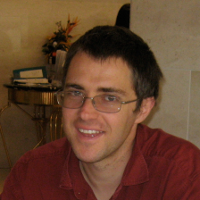 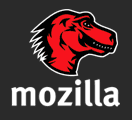 |
Changing The World Robert O'Callahan, Mozilla Details: 1100-1200, Tuesday 13 April MCLT101, Kelburn Campus Abstract: Computer science is powerful because it can change the lives of millions of people at negligible marginal cost. I'd encourage everyone to pursue that opportunity and try to escape the traps of either tedious corporate software development --- "IT", which I loathe --- or academic research that is either too absurd or too mundane to have impact. I'd draw on my experiences in academia, corporate research, open-source software development, and Web standards to try to provide some useful object lessons in how to realize that goal. (For example, "I have technology X, let me find an application for it" is a bad approach that I failed to avoid.) I attack the false dichotomies of "academia" vs "industry" and "pure" vs "applied" research. I have some tips on publishing, technology transfer, and where I see opportunities for research today. Bio: Robert O'Callahan obtained a PhD in computer science from Carnegie Mellon University in the areas of software engineering and programming languages, focusing on using polymorphic type inference for alias analysis and understanding of Java and C programs. He then spent a few years at the IBM T.J. Watson Research Center working on dynamic program analysis tools such as dynamic race detectors and advanced profilers. Along the way he was on the program committees of major conferences such as OOPSLA and POPL. In parallel, for several years he contributed to the Mozilla open-source project (what became Firefox) as a volunteer. Finally he returned to New Zealand and put his research career on hold to save the Web from corporate domination, er, work full-time on Mozilla, first for Novell and then for the Mozilla Corporation. Currently he runs the MoCo Auckland office, manages a worldwide team responsible for layout and media in the Gecko Web browsing engine, writes a fair bit of code, and tries to persuade other people to solve the research problems he cares about.
|
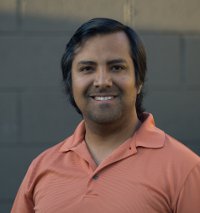  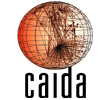 |
A Day In The Life of the Internet (DITL) Sebastian Castro, .NZ Registry Services and Cooperative Association for Internet Data Analysis (CAIDA) Details: 1100-1200, Wednesday 14 April MCLT101, Kelburn Campus Abstract: The project "A Day in The Life of the Internet" (DITL) is an ambitious effort to coordinate and conduct a large-scale, simultaneous traffic data collection in key locations of the Internet. After four continuous years the most success has been achievement at the DNS level, with participation from the root servers, TLDs, RIRs, and other operators. This presentation will cover the origins of DITL, the collection challenges and a whole range of analysis that will provide insights and questions about the future of the Internet. Bio: Sebastian Castro obtained a MSc degree in Computer Science from the University of Chile in the area of Computer Networks, focusing in methodologies to create realistic Internet-wide simulations applied to anycast deployment. He has been recently appointed as DNS Specialist working for NZRS, the .nz Registry Services. Previously he had a two-year sabatical working as DNS Analyst for CAIDA mainly involved in the analysis of DITL data. Before that, he shared his time between DNS Operations for the .CL registry and lecturer for the CS Department of the University of Chile.
|
 |
The Career-Spotter's Field Guide Nat Torkington Details: 2030-2130, Wednesday 14 April MCLT103, Kelburn Campus Abstract:There's life beyond the ivy-covered walls of academia. Learn from veteran observer Nat Torkington about startups and BigCos, of IT and ops and dev, of VCs and IPOs, and why open source fails to suck. Many illustrations, hard case, cloth bound, slight foxing. 1st edition. Bio: Nat Torkington ran the first web server in New Zealand, cowrote "Perl Cookbook", and while in the US ran conferences on topics as diverse as bioinformatics, Internet mapping, and open source software. He's worked with startups and corporates. He lives and works north of Auckland, where he builds communities of innovators and helps corporates how to fail to suck.
|
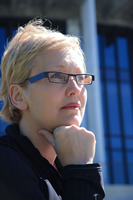  |
Designing 21st Century Government: The Value of E-Government Research Miriam Lips, Professor of e-Government, Victoria University of Wellington Details: 1100-1200, Thursday 15 April MCLT101, Kelburn Campus Abstract: In this presentation Miriam will point out how she defines and understands e-Government, and where she sees opportunities for e-Government research. Miriam will further draw attention to the value of e-Government research for academia and the public sector by presenting the research design and findings of three projects she recently conducted in collaboration with New Zealand government agencies:
Miriam's research concentrates more generally on the introduction, management and use of Information and Communication Technologies in the public sector and its external relationships with society, with a current focus on topics like identity management, citizen-centric government, e-records management, the use of new media by political parties, cross-government information sharing, and e-participation. Miriam is a Book Review Editor and Member of the editorial board of Information Polity (IOS Press), Member of the editorial board of Online Information Review (Emerald), Member of the editorial board of Information, Communication & Society (Routledge), Member of the editorial board of Policy and Internet (The Policy Studies Organization, the Oxford Internet Institute and The Berkeley Electronic Press), Member of the Advisory Board of the Electronic Journal Identity in the Information Society (Springer) and Member of IFIP Working Groups 8.5 (Information Systems in Public Administration) and 11.6 (Identity Management). Prior to taking up her position in New Zealand, Miriam worked as a Research Fellow at the Oxford Internet Institute, University of Oxford, and as an Associate Professor (with tenure) at the Tilburg Institute for Law, Technology and Society at Tilburg University. She also was the Academic Director of the Master in Public Information Management at TIAS-NIMBAS Business School. Miriam held memberships of the Netherlands Organisation for Scientific Research's Network of Networks Programme Committee, the Netherlands Organisation for Scientific Research's Open Competition Social Sciences Assessment Committee and the Scientific Advisory Council of The Netherlands Bsik research programme 'Space for Geo-information'. Moreover, Miriam was Activity Leader of social scientific research in the European FP6 Integrated Project 'Privacy and Identity Management for Europe' (PRIME) and a project leader of a two-year research project "Personal Identification and Identity Management in New Modes of e-Government", sponsored by the UK Economic and Social Research Council.
|
| I | Attachment | Action | Size | Date | Who | Comment |
|---|---|---|---|---|---|---|
| |
CareersSpottersFieldGuide.pdf | manage | 10 MB | 26 Apr 2010 - 14:42 | Main.craig | |
| |
ChangingTheWorld.pdf | manage | 256 K | 19 Apr 2010 - 17:16 | Main.craig | |
| |
DITL-for-research.pdf | manage | 1 MB | 21 Apr 2010 - 17:51 | Main.craig | |
| |
MiriamLips.jpg | manage | 31 K | 25 Feb 2010 - 12:12 | Main.craig | |
| |
MiriamLips.pdf | manage | 662 K | 23 Apr 2010 - 17:27 | Main.craig | |
| |
NatTorkington.jpg | manage | 8 K | 09 Feb 2010 - 14:56 | Main.craig | |
| |
SebastianCastro.jpg | manage | 6 K | 09 Mar 2010 - 13:34 | Main.craig | |
| |
caida-logo.gif | manage | 5 K | 03 Mar 2010 - 14:13 | Main.craig | |
| |
mozilla.png | manage | 8 K | 11 Dec 2009 - 20:03 | Main.craig | |
| |
nzrs-logo.gif | manage | 1 K | 03 Mar 2010 - 14:18 | Main.craig | |
| |
rob-ocallahan.png | manage | 61 K | 01 Dec 2009 - 19:35 | Main.craig |
- Content
-
 Home
Home
-
 About
About
-
 Important Dates
Important Dates
-
 Registration
Registration


 Events/NZCSRSC2010
Events/NZCSRSC2010

